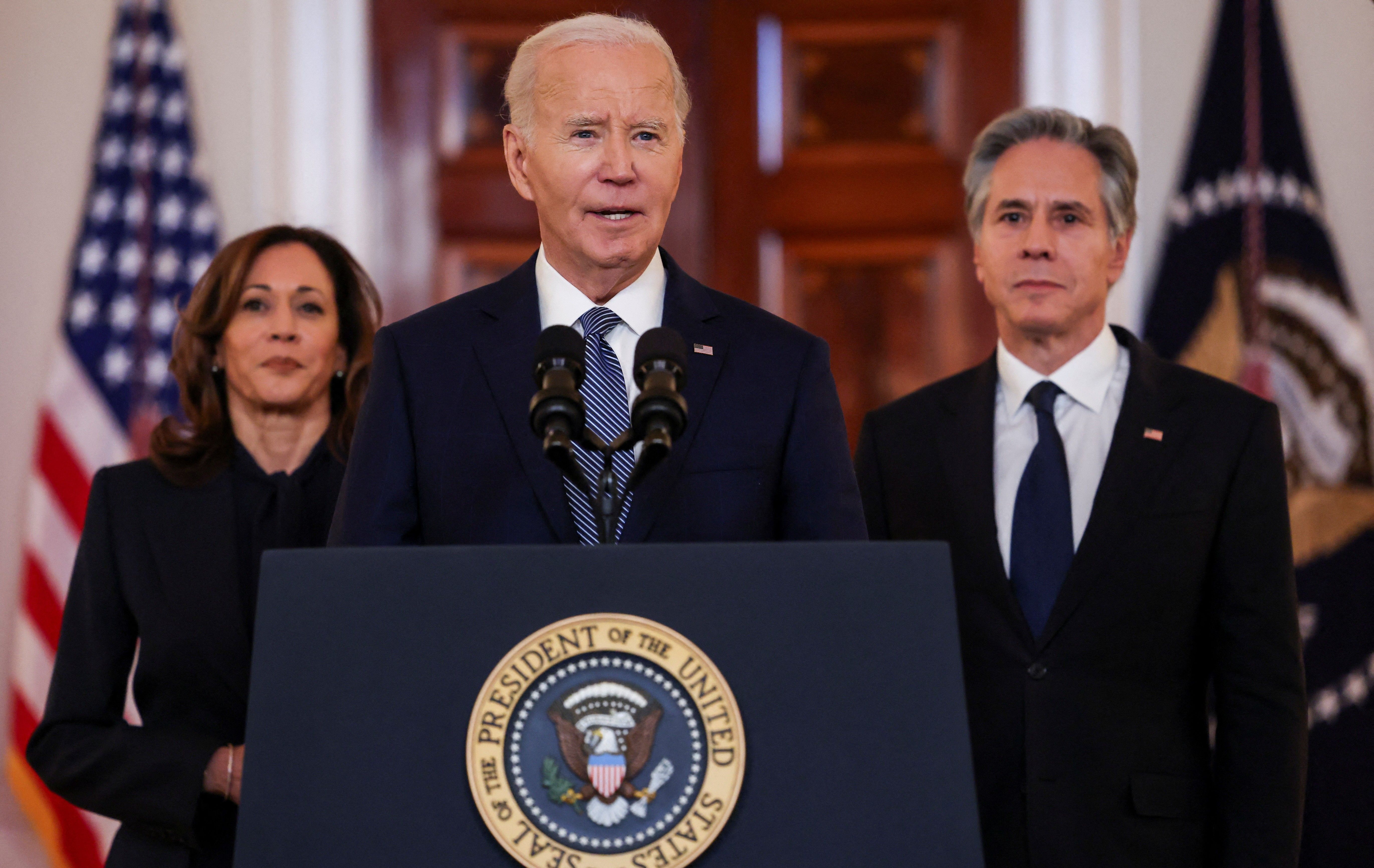The achievement of a Gaza hostage deal and temporary ceasefire ahead of Trump's inauguration demonstrates the power that the U.S. had all along. The Biden administration simply refused to use American leverage to push Netanyahu, despite U.S. officials’ assertions that they were “working tirelessly towards a ceasefire.”
In his remarks about the deal, and in his response to journalists afterwards, President Biden sought to take full credit. He pointed out that this was the deal he proposed in May, yet did not acknowledge that it was Trump’s willingness to pressure Israel to reach a ceasefire in time for his inauguration that actually achieved the deal, which Biden had failed to for months. "A diplomat briefed on the ceasefire negotiations between Israel and Hamas credited progress in the talks in part to the influence of President-elect Donald Trump, saying it was 'the first time there has been real pressure on the Israeli side to accept a deal’,” according to the Washington Post.
Unfortunately, despite the jubilation of the population in Gaza as well as that of the families of hostages held by Hamas, there have already been signs that Netanyahu has no interest in a lasting ceasefire. Last month, Netanyahu told Channel 12 news that the Israeli military would resume fighting even if a deal were achieved.
“If there is a deal — and I hope there will be — Israel will return to fighting afterward,” he said. “There is no point in pretending otherwise because returning to fighting is needed in order to complete the goals of the war.”
This statement ignores the reality that Secretary of State Blinken acknowledged on Monday, that Israel’s war in Gaza has generated more recruits for Hamas than it had before October 7, 2023, demonstrating that Israel’s actions have been counterproductive to its alleged goal of reestablishing Israeli security. Bezalel Smotrich, Israel’s far-right Minister of Finance, stated on Tuesday that “the war must continue,” but did not indicate if he would exit Netanyahu’s government, as he had previously threatened to do if the prime minister agreed to a ceasefire.
In contrast to Israeli politicians’ pledges to keep fighting, and Biden’s efforts to take credit, President-elect Trump expressed his intention to build on the ceasefire. On Truth Social, Donald Trump posted, “This EPIC ceasefire agreement could have only happened as a result of our Historic Victory in November, as it signaled to the entire World that my Administration would seek Peace and negotiate deals to ensure the safety of all Americans, and our allies…”
Trump said that he would build on the ceasefire’s momentum to expand the Abraham Accords, something the Biden team tried and failed to accomplish. In particular, both Biden and Trump hoped to facilitate the normalization of relations between Israel and Saudi Arabia. With Israel engaged in a brutal campaign of violence and starvation against civilians in Gaza, normalization with Saudi Arabia was impossible. If the ceasefire holds, Saudi Arabia’s Crown Prince Mohammed bin Salman may be more willing to normalize, although that agreement would be jeopardized by Israel’s ambition to annex the West Bank.
News of the ceasefire broke on the same day a new poll came out finding that the genocide in Gaza was the number one issue that kept Biden’s supporters from voting for Harris. Twenty-nine percent of those who had voted for Biden in 2020 but did not vote for Harris in 2024 cited Gaza as the reason. This outranked the economy (24 percent) and immigration (11 percent), according to the poll from YouGov and the Institute for Middle East Understanding (IMEU).
Trump’s success in achieving a temporary ceasefire and hostage deal, combined with the disastrous political effects of Harris’s unwillingness to break with her boss on foreign policy, both demonstrate the folly of Biden’s unconditional support for Israel. If Biden had used the United States’ considerable leverage to achieve a ceasefire, his party might not have lost the election.
The question that remains now is how long the ceasefire will last. The terms stipulate a six week cessation in fighting and an exchange of hostages by both sides, primarily 33 hostages held by Hamas over 42 days, in exchange for approximately 1,000 Palestinian prisoners.
Speculation on social media and after Biden’s remarks was rife about how long the deal is likely to last. After boasting that he achieved his goal of a ceasefire by his inauguration, Trump may lose interest in reining in Israel’s military operations in Gaza. The deal may last through the first phase of 42 days, but beyond that the Israeli press has reported that Netanyahu promised Smotrich that the fighting would resume.
If he wished, Trump could contribute to a more lasting ceasefire by maintaining pressure on Netanyahu and upholding U.S. laws that would end American security assistance to Israel due to its human rights abuses and blocking of humanitarian aid.




 (Shana Marshall)
(Shana Marshall)











